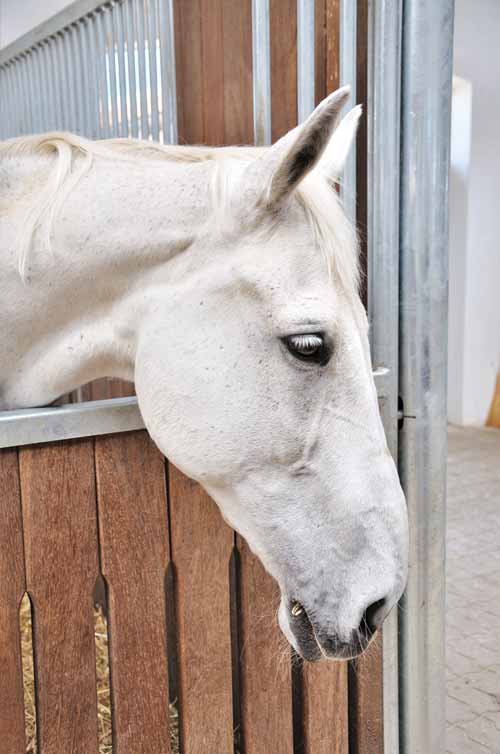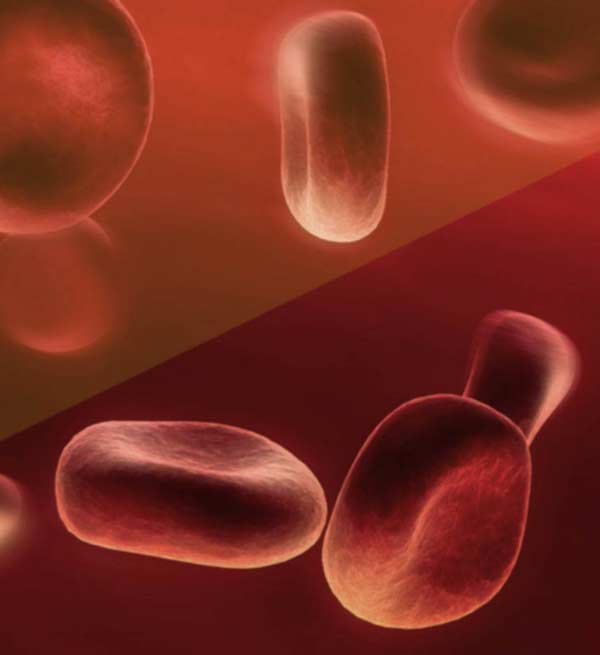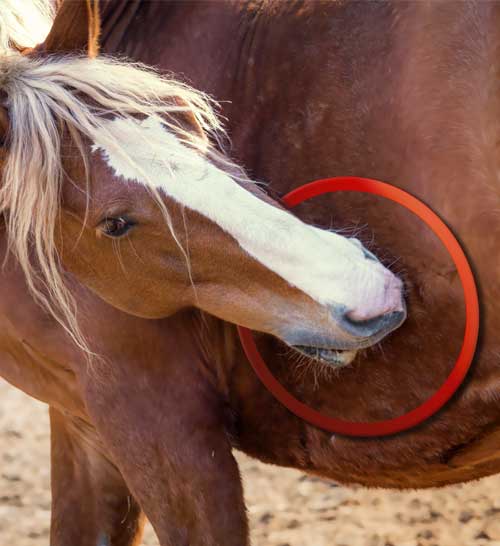Stalling, Trailering & Confinement

Whether your horse is injured, ill or in recovery, or being sheltered from a storm, horses that are stalled and confined are known to have high digestive acidity and are more prone ulcer problems. Horses are grazers and designed for continuous movement to aid their digestion and greater well being. Also, they are social animals and need the interaction of others for their mental health. Confining a horse to a stall for the better part of the day for any reason, can trigger all kinds of ulcer indicative behaviors from: wood chewing, wind sucking/cribbing, pawing and digging, to putting their head in the corner in depression, and even aggressive behavior towards humans.
Evacuating Horses from Natural Disasters
Events like hurricanes and wildfires force owners and caretakers to nearly panic to get horses out of immediate danger and find new temporary boarding facilities, while damaged ones are repaired rebuilt. Temporary rescue locations usually only offer limited space when they get large influxes of horses. This can make trailering, stalling and extended confinement very likely. It is important to find natural ways of counteracting the stress chemistry induced in horses when enduring rescue conditions. Nutrient Buffer® naturally reduces colic and neutralizes the excess digestive acidity that aggravates and causes ulcers - without compromising digestive absorption - and it's safe for daily continuous use.
Cold Weather & stormy Colic - Barometer Drops
When the barometer drops, the air pressure on the body drops and allows the tissues to swell - causing lymphatic congestion. Movement is helpful to proper lymphatic flow and helps to prevent inflammation. Cold and stormy weather makes trailering, stalling and confinement more compromising on sensitive horses. Severe cold causes increased acidity, which then draws more intensely on the body’s ability to counteract that. Nutrient Buffer® neutralizes excess acidity and helps reduce colics.
Nutrient Buffer® added to the feed several times per day, and intermittent dosing of 60㏄ when a horse shows signs of stress will help within 5-10 minutes to mitigate behavior such as: playing with the tongue; yawning; looking at the their sides; cribbing; wind sucking; wood chewing; pawing; digging and eating dirt; putting head in the corner. Horses that eat abnormal foodstuffs like wood and dirt are trying to put something in their stomachs that will absorb the excess acid generated from the stress of stalling.
When Nutrient Buffer® is a regular addition to any program where horses are also on Bute® or Banamine®, it can help prevent ulcers that NSAID drugs are well known to cause.
Nutrient Buffer® dosed at 60㏄ just 5 minutes before presenting feed will help eating behavior in horses who tend to be off feed.
Nutrient Buffer® dosed every couple of hours while trailering long distances helps horses cope with the stress of trailering. Many professionals think Nutrient Buffer® is essential for trailering, especially over long distances. Our Biochemist also formulated a product called Sanity®, for stressful events when muscles are constantly bracing such as where the horse is in a moving trailer and confined. Hauling is perhaps the most stressful stalling or confining condition a horse can ever face, especially over long distances like state to state - or coast to coast.
You can purchase both Nutrient Buffer® and Sanity® together, and learn more about our whole line of supplements and feed, on our Equine Plus® website.




